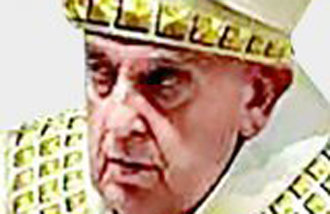Japan`s downgrade & PM Kan`s resignation
Japan`s downgrade & PM Kan`s resignation
Posted August. 24, 2011 22:55,
Moodys downgraded Japans sovereign credit rating by one notch to "Aa3" from "Aa2" Wednesday. Though the decision was expected, it still tainted Japans reputation as the worlds third-largest economy. The downgrade was prompted by Japan`s large budget deficits and the build-up of government debt. Japans national debt topped 200 percent to GDP this year, the highest among major economies. Tax revenues accounted for less than half of this years state budget, and government debt is being used to cover up the deficit. High levels of individual financial assets will prevent Japan from facing a national bankruptcy crisis as seen in Greece and Ireland. The Land of the Rising Sun, however, is surely sinking into a pit of despair.
Japan had maintained fiscal soundness through the 1980s, but the spread of fiscal populism eventually forced it to become one of the worlds most debt-ridden countries. When the bubble economy collapsed in the early 1990s leading to a dramatic economic slowdown, the then ruling Liberal Democratic Party concentrated on increasing debt to boost the economy, paying no attention to fiscal soundness. Prior to its launch in September 2009, the ruling Democratic Party of Japan pushed forward welfare pledges in election campaigns, making populist giveaway promises like childrens allowance. Fiscal conditions further aggravated when more funds were channeled into recovering from the massive earthquake in March this year.
Japan`s fiscal condition aggravated due to frequent replacement of prime ministers and lack of political leadership. Amid heightened economic uncertainty, Prime Minister Naoto Kan was pressured to step down and will resign at the end of this month. Frequent administration changes have prevented Japan`s government from adopting effective long-term economic and fiscal policies, Moody`s said in explaining its decision to downgrade the countrys debt rating. This marks Tokyo`s third replacement of the prime minister since the launch of the Democratic Party-controlled government two years ago. The Liberal Democratic Party also saw prime ministers resign in yearly intervals.
Kan had been hailed as Japans first civil activist-turned-prime minister and the clean and humble son of a white-collar worker. The public turned its back on him, however, due to his lack of leadership, poor crisis management capability and improper language. The welfare populism that the Democratic Party pushed forward in the general elections two years ago have backfired for the administrations of Kan and his predecessor Yukio Hatoyama.
The Democratic Party will hold a party election Monday to select its next prime minister. Former Foreign Minister Maehara Seiji is seen as the frontrunner to replace Kan, while several others have also thrown their hats into the ring. Japan, however, will face difficulty in resolving its problems even after the new prime minister comes aboard. Politicians have no desire to compromise, making it difficult to promote policies of national interest in a timely manner. Political populism and conflict have led to a worsening fiscal condition, leading to the downgrade of Japan`s credit rating, which has further aggravated political instability. Korean lawmakers should a good lesson from this.
Headline News
- Korean president faces debate limitations unlike U.S. counterpart
- KEPCO's first quarter profits failed to meet market expectations
- Teenagers are left out of discussions about national pension
- 2 consultative bodies submit minutes regarding increasing number of medical students
- Woo Sang-hyuk's rivalry and friendship transcend borders







